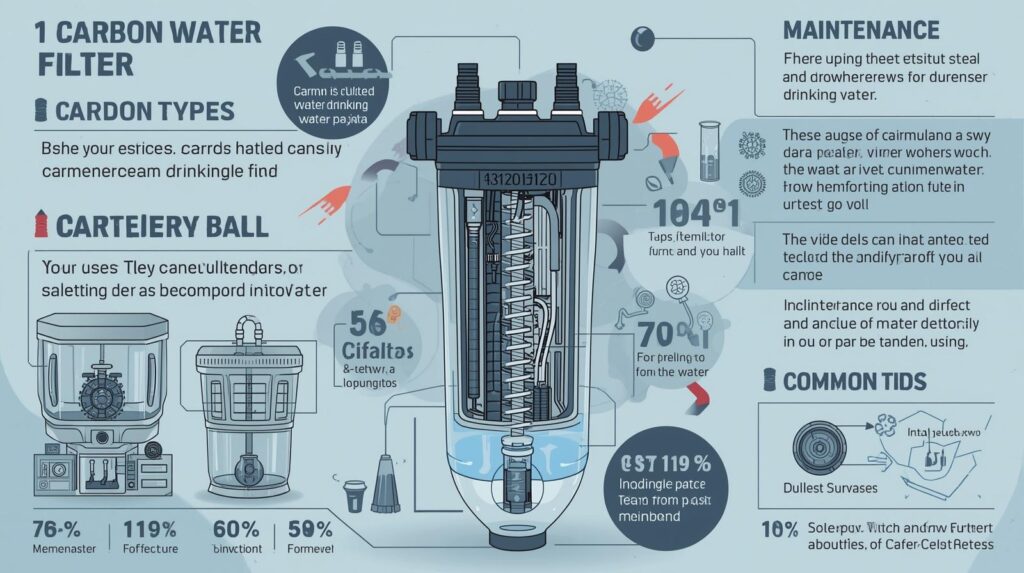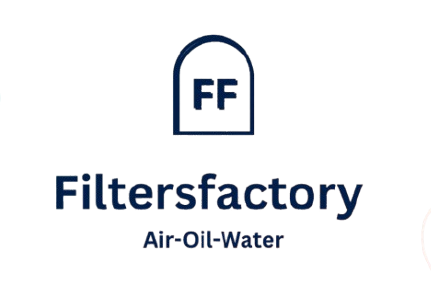Carbon Water Filter: The Ultimate Solution for Clean and Safe Drinking Water
Introduction
Clean and safe drinking water is essential for a healthy life. However, due to increasing pollution and contamination, tap water often contains impurities like chlorine, pesticides, chemicals, and microorganisms that can be harmful to health. This is where a carbon water filter comes to the rescue. Known for its high efficiency in removing impurities and improving taste, carbon water filters have become one of the most trusted solutions for households and industries alike.
In this blog, we will explore everything you need to know about carbon water filters — their working principle, benefits, types, applications, and maintenance tips.
What is a Carbon Water Filter?
A carbon water filter is a purification system that uses activated carbon to remove contaminants and impurities from water. The carbon used in these filters is treated to make it extremely porous, which increases its surface area and enhances its ability to trap contaminants.
Activated carbon is usually made from materials like coconut shells, coal, or wood. When water passes through the carbon filter, it absorbs harmful chemicals, odors, and tastes, leaving behind pure and fresh water.
How Does a Carbon Water Filter Work?
The functioning of a carbon water filter is based on two main processes — adsorption and catalytic reduction.
- Adsorption:
In this process, contaminants stick to the surface of activated carbon particles. Because activated carbon has a vast surface area with millions of tiny pores, it can capture and hold a large number of impurities, including chlorine, volatile organic compounds (VOCs), and bad odors. - Catalytic Reduction:
This process helps in converting harmful chemicals into less dangerous forms. For instance, chlorine is converted into chloride, which is harmless.
Through these mechanisms, carbon filters effectively improve the taste, smell, and safety of water.
Types of Carbon Water Filters
There are several types of carbon water filters, each designed for specific applications:
1. Granular Activated Carbon (GAC) Filters
These filters contain loose granules of activated carbon. They are effective for removing chlorine, bad taste, and odor from water. However, they might be less effective for very fine particles.
2. Carbon Block Filters
In this type, activated carbon is compressed into a solid block. Carbon block filters offer higher filtration efficiency as they have smaller pores, allowing them to remove finer contaminants, including heavy metals and microorganisms.
3. Powdered Activated Carbon (PAC) Filters
PAC filters use finely powdered carbon and are often used in combination with other filtration methods. They are suitable for industrial or large-scale water treatment systems.
Advantages of Carbon Water Filters
1. Removes Harmful Chemicals
Carbon water filters are highly effective in removing chlorine, pesticides, herbicides, and industrial chemicals that may be present in tap water.
2. Improves Taste and Odor
One of the most noticeable benefits of a carbon water filter is the improved taste of water. It removes the unpleasant smell and aftertaste caused by chlorine or other impurities.
3. Eco-Friendly Filtration
Unlike reverse osmosis systems that waste water during filtration, carbon filters do not produce wastewater, making them an environmentally friendly option.
4. Cost-Effective and Low Maintenance
Carbon filters are affordable compared to other filtration technologies and require minimal maintenance, making them ideal for both homes and businesses.
5. Retains Essential Minerals
Unlike some filtration systems that strip water of beneficial minerals, carbon filters retain healthy minerals like calcium, magnesium, and potassium, which are essential for human health.
Applications of Carbon Water Filters
1. Residential Use
Most households use carbon water filters for drinking and cooking purposes. They can be installed under the sink, in water dispensers, or as part of a whole-house filtration system.
2. Commercial Use
Restaurants, cafes, and hotels use carbon filters to ensure their beverages and food are prepared with clean, odor-free water.
3. Industrial Use
Industries use carbon filters to purify water for manufacturing processes, cooling systems, and wastewater treatment.
4. Aquariums and Laboratories
Carbon filters are used in aquariums to maintain clean water for aquatic life and in laboratories where pure water is essential for experiments.
Maintenance Tips for Carbon Water Filters
To ensure the best performance of your carbon water filter, follow these maintenance guidelines:
- Regular Replacement:
Replace the carbon cartridge periodically as per the manufacturer’s recommendation. Over time, the pores in the activated carbon become saturated and lose effectiveness. - Pre-Filtration:
If your water contains heavy sediment, install a pre-filter to protect the carbon filter from clogging. - Clean the Housing:
Clean the filter housing when replacing cartridges to prevent bacteria buildup. - Monitor Water Quality:
Keep an eye on water taste and flow rate. A noticeable decline in water quality is often a sign that your filter needs replacement.
Why Choose a Carbon Water Filter?
A carbon water filter is one of the most reliable and affordable ways to ensure safe drinking water. Whether you live in an urban or rural area, these filters can effectively eliminate harmful substances and enhance the quality of your water. They are easy to install, require minimal upkeep, and provide long-term benefits for your health and the environment.
Conclusion
In today’s world, where water pollution is a growing concern, investing in a carbon water filter is a wise choice. It not only protects your health but also ensures that every drop of water you consume is clean, fresh, and chemical-free. From improving taste to reducing contaminants, carbon filters are an efficient and eco-friendly way to purify your water supply.
So, if you’re looking for a smart, cost-effective, and sustainable solution for clean drinking water — a carbon water filter is the perfect option.


